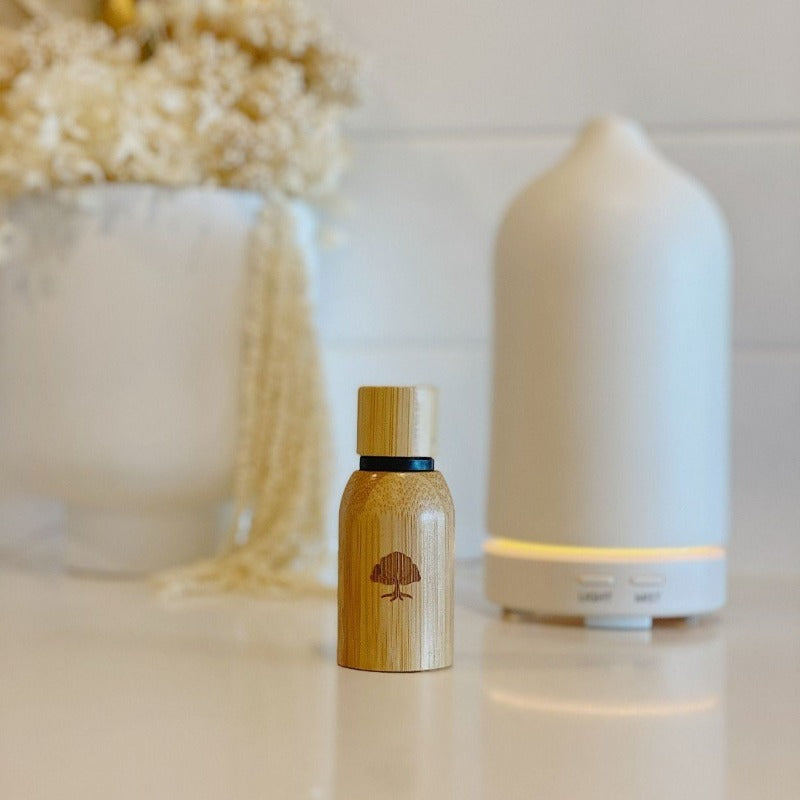
The Role of Sleep in Alleviating Burnout
The Role of Sleep in Alleviating Burnout
Breaking the Insomnia Cycle

Photo source: Forbes
Burnout has become an all too familiar companion for many individuals. From high-pressure work environments to the demands of personal responsibilities, the relentless pace of life often leaves us teetering on the brink of physical and mental exhaustion.
This article delves into the crucial role that sleep plays in managing burnout and breaking the vicious cycle of insomnia, drawing insights from scientific research and holistic wellness practices.
Understanding Burnout
Burnout isn't just feeling tired or stressed; it's a complex syndrome characterised by emotional exhaustion, depersonalisation, and reduced personal accomplishment.
Recognising the stages of burnout, as outlined in the insightful Forbes article "Am I Burned Out? How to Recognise the 12 Stages of Burnout," can provide individuals with a roadmap to identify and address burnout symptoms early on, from excessive ambition and working through perfectionism, neglect of personal needs, and eventual detachment and depression.
Here’s what is important to note about the transitions between stages based on common patterns seen in burnout:
- Incremental Progression: Burnout typically doesn't occur suddenly but rather evolves through incremental steps. The transitions between stages often reflect a gradual shift in attitudes, behaviours, and emotional responses to work-related stressors.
- Trigger Events: Transitions between stages can be triggered by specific events or prolonged periods of stress. For example, a significant increase in workload or a challenging project deadline may lead to transitions from the initial stages of ambition to working harder and neglecting personal needs.
- Coping Mechanisms: Individuals may initially employ coping mechanisms at different stages to manage stress. However, these coping strategies may become less effective over time, contributing to transitions toward disengagement, withdrawal, and emotional detachment.
- Awareness and Denial: Transitions between stages may involve shifts in self-awareness and recognition of burnout symptoms. Initially, individuals may deny or downplay early signs of burnout, leading to continued stress and progression through the stages. Increased awareness or external feedback can prompt individuals to acknowledge burnout and seek support.
- Impact on Well-being: The transitions between stages often coincide with changes in physical, emotional, and mental well-being. As burnout progresses, individuals may experience increased fatigue, emotional exhaustion, mood and sleep disturbances, and reduced job satisfaction.
- The interplay of Factors: Burnout transitions are influenced by various factors such as job demands, organisational culture, personal resilience, social support, and coping strategies. Understanding these interplaying factors can guide interventions aimed at mitigating burnout risks and promoting well-being.
The Science of Sleep and Burnout
Quality sleep is not a luxury but a fundamental pillar of well-being.
Research increasingly highlights the intricate relationship between sleep and burnout. Chronic sleep deprivation not only impairs cognitive function but also amplifies stress levels, contributing to burnout symptoms. Understanding the science behind sleep cycles, including the restorative REM (Rapid Eye Movement) sleep phase, underscores the importance of prioritising sleep for overall health and resilience against burnout.
Role of REM Sleep in Cognitive Restoration
REM sleep is essential for cognitive restoration, emotional regulation, and memory consolidation. In the relentless pursuit of productivity, many overlook the critical role that adequate REM sleep plays in maintaining mental acuity and emotional well-being.
Strategies to enhance REM sleep, such as creating a conducive sleep environment, practising relaxation techniques, and incorporating sensory inputs like essential oils, can significantly improve sleep quality and resilience.
Breaking the Insomnia Cycle
Insomnia often intertwines with burnout, creating a vicious cycle of exhaustion and diminished well-being. Addressing insomnia requires a multifaceted approach encompassing psychological interventions, lifestyle adjustments, and holistic well-being practices. Insights from studies, such as the Flinders Institute research on sensory inputs like essential oils improving sleep quality, offer tangible strategies to break free from the insomnia cycle and promote restorative sleep.

The Flinders Institute study delved into the therapeutic effects of sensory inputs, particularly essential oils, on sleep quality and overall well-being.
Participants exposed to specific essential oil scents reported significant improvements in sleep duration, sleep continuity, and subjective sleep quality compared to control groups. This highlights the potential of aromatherapy as a complementary approach to conventional sleep interventions, especially for individuals grappling with insomnia linked to burnout and stress.
Utilising Aromatherapy for Better Sleep
Aromatherapy, the use of aromatic essential oils derived from plants, taps into the powerful connection between scent and emotions. Certain essential oils, such as lavender, chamomile, and bergamot, exhibit calming and sleep-promoting properties. Incorporating aromatherapy into nightly routines through diffusers, pillow sprays, or diluted oils in baths can create a soothing sleep environment conducive to relaxation and improved sleep quality.
Moreover, the holistic benefits of aromatherapy extend beyond sleep enhancement. Many essential oils possess stress-reducing and mood-balancing effects, offering a holistic approach to managing burnout symptoms. By engaging the senses positively, aromatherapy complements other wellness practices, such as mindfulness and relaxation techniques, in promoting overall well-being and resilience against burnout. Read more about essential oils for sleep in our Wellness Hub article here.
Creating Your Sleep Sanctuary
Integrating aromatherapy into your sleep routine involves creating a personalised sleep sanctuary tailored to your preferences. Experiment with different essential oil blends or single oils known for their sleep-inducing properties. Establish calming pre-sleep rituals, such as gentle yoga, meditation, or reading, accompanied by aromatherapy to signal to your body that it's time to unwind and prepare for restorative sleep.
By harnessing the natural benefits of aromatherapy alongside holistic sleep strategies, individuals can break the insomnia cycle, alleviate burnout-related sleep disturbances, and cultivate a deeper sense of well-being.
Ready to transform your sleep quality and reclaim your well-being? Take the next step to better sleep and holistic wellness by joining our Sleep for Success(c) Challenge.
Discover practical strategies, expert guidance, and community support to revamp your sleep habits in just 7 days. Say goodbye to insomnia cycles, and burnout-related sleep disturbances, and hello to rejuvenating, restorative sleep.




































